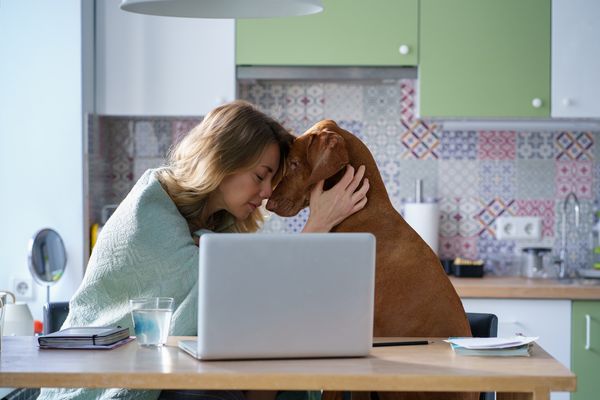Deciding who gets the dog in a divorce can be as heart-wrenching as any other custody decision. Pets often hold a special place in the family, and the thought of parting with a beloved dog can add stress to the already difficult divorce process. In Texas, the approach to pet custody during a divorce involves specific considerations under the law.
Keep reading for a detailed explanation of those considerations from our skilled Frisco divorce lawyers.

How Texas law views pets in divorce
In Texas, as in many other states, pets are considered personal property. This legal definition impacts how pets are treated in a divorce. Unlike children, where the court considers the child’s best interest, decisions about who gets the dog in a divorce are made based on property division laws.
Community vs. separate property
The first step is determining whether the pet is community property (acquired during the marriage) or separate property (acquired before the marriage or through inheritance or gift). If the dog was acquired during the marriage, it is likely considered community property and subject to division under Texas’s community property laws.
If one spouse owned the dog before the marriage, it is typically considered that spouse’s separate property and not subject to division (Texas Family Code Section 3.002).
Factors influencing who gets the dog in a divorce
Agreements between spouses
The simplest resolution on who gets the dog comes when spouses can agree. Many couples decide through negotiation or mediation who should keep the pet. Such agreements can specify who keeps the dog and visitation rights for the other spouse, similar to child custody arrangements.
Considerations for the court
If the matter is left to the court, the judge may consider various factors to determine which spouse will keep the pet:
- Attachment to the pet – Who has the closest bond with the dog? Who is the primary caretaker?
- Spouse’s lifestyle and stability – Who has the time and resources to care for the pet properly?
- Children’s attachment – If children are involved and custody has been determined, the pet might go with the children to provide continuity and comfort.
Involvement in pet-related activities
Judges may also consider who takes the dog to vet appointments, walks and feeds them, and handles their grooming and other needs.
Living arrangements
The living situations of both spouses can play a significant role. For example, if one spouse moves to a pet-friendly residence while the other does not, this might influence the decision.
Financial responsibility
The ability to financially support the pet, including costs for food, medical care, and other necessities, may also be a factor.
Legal assistance and advice
Pets are family, and decisions about their care during a divorce are important. Whether through mutual agreement or court intervention, it’s essential to approach these decisions with a clear understanding of the legal landscape and a commitment to the well-being of your cherished animal.
At Albin Oldner Law, we provide compassionate legal support to ensure that your rights and the welfare of your beloved pets are protected during a divorce.


